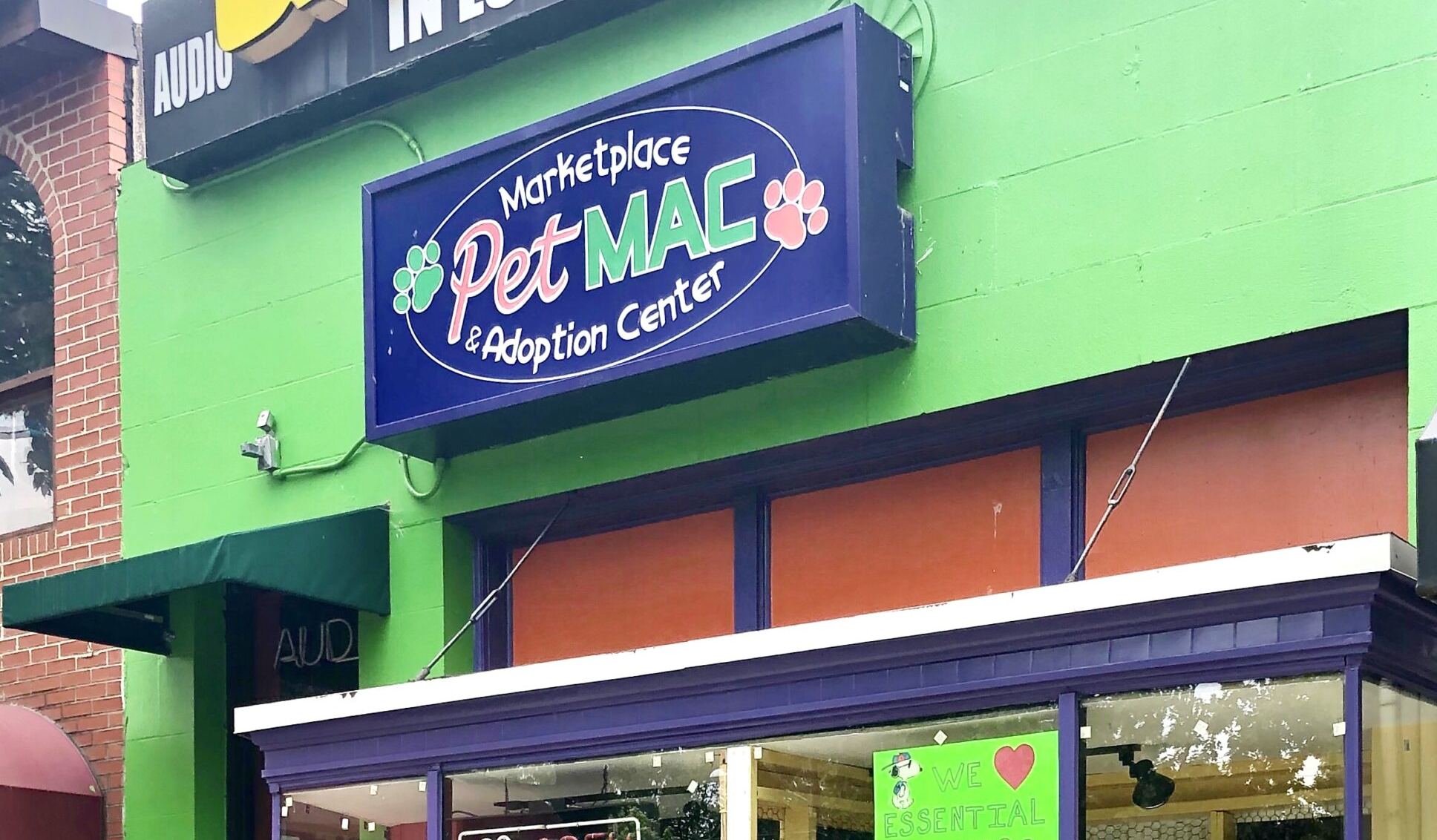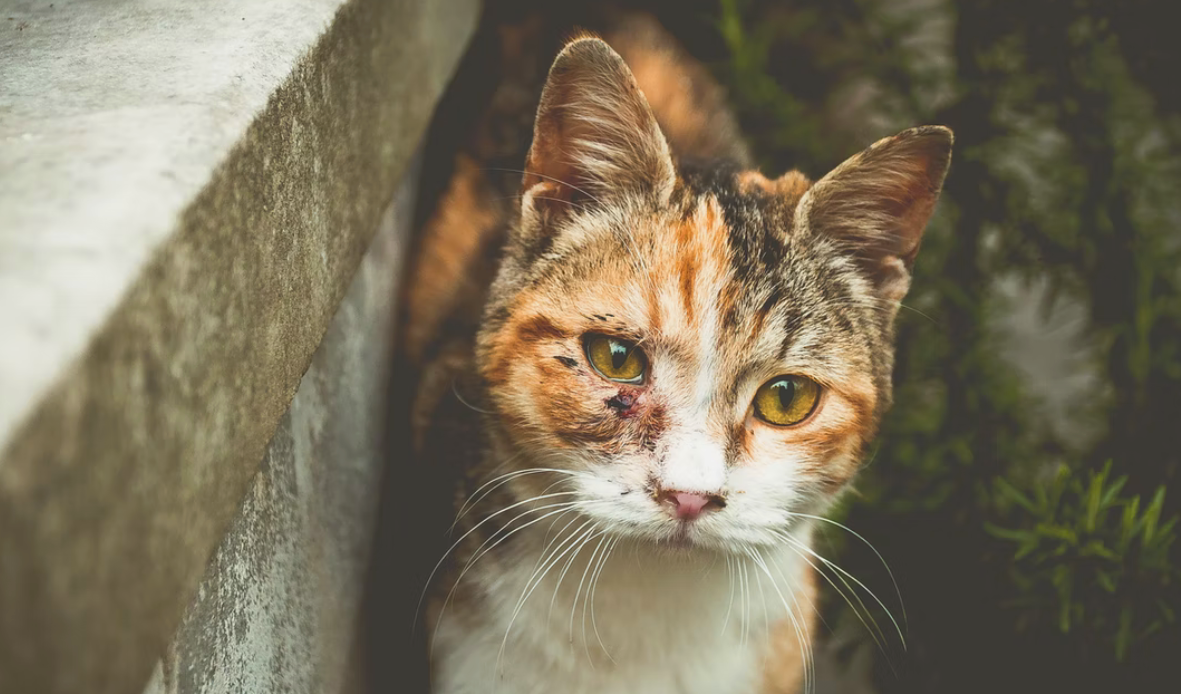Pets Bring Joy in Our Community
Found a Friendly Stray?

If you find a friendly stray and would like to help him/her, start by reporting the found cat with your local shelter. Fairfax County residents should email animalshelter@fairfaxcounty.gov with a subject line of "Need assistance with a stray cat."
Have the cat scanned for a microchip at the local shelter or a veterinarian's office.
Create a "found cat" poster/flyer and distribute/display in your immediate neighborhood, as well as on your neighborhood listserv.
If after completing the steps above, you would still like to discuss finding him/her a new home, please visit our rehoming page.
If You've Lost a Pet

The best time to find a missing cat is at dusk or dawn ... cats will often hide near the door that they left from until they feel safe to come out of hiding, so be sure to give your cat the opportunity to reenter your home by leaving that door open and monitoring.
Familiar scents: put warmed canned food or tuna fish out at dusk as well to draw your cat home.
Consider putting some soiled litter from your cat's litter box (or the whole box) just outside the door to draw them via that scent as well.
Report a lost cat with your local shelter.
Create a "lost cat" poster/flyer and distribute/display in your immediate neighborhood, along with
posting to a neighborhood listserv.
Use the database provided by Petco Love Lost to search across
regional shelters and rescues for your missing pet.
Keeping Pets with Families: PBJ's Owner Assistance Program

We believe in keeping people and pets together, and our Owner Assistance Program is devoted to doing so.
Sometimes, all it takes is providing advice on how to correct behavioral issues, which we are delighted to help with --
especially with regard to felines!
If you are struggling with behavioral issues such as destructive scratching or litter-box accidents,
please visit our FAQ page or email
ownerhelp@pbj.org regarding your situation.
If medical costs are of concern, we're happy to share the following resources for families seeking low cost spay/neuter,
dentals, surgery and vaccines.
Please visit:
https://anicira.org
https://www.spaynow.com
https://valuevet.net
https://www.humanerescuealliance.org
Rehoming Your Pet
If you still feel that rehoming your pet is the best plan for your family and your pet, please visit our pet surrender page.
Youth
Internships

If you are a student aged 18 or under looking for animal-related experience in the DC area, Pets Bring Joy offers high school internships in partnership with PetMAC DC. Please email rezqumee@gmail.com for more information.
Providing Temporary
Housing

If you and your pets are experiencing a housing crisis, please email petcare@pbj.org ... Pets Bring Joy may (pending availability) provide short term pet housing for little or no cost to families in crisis. If both you and your pets need temporary housing, here are some pet-friendly options to consider:
Extended Stay America
Red Roof Inn
Helping Paws
Food/Supply Resources

We believe no pet should go hungry, and so we offer (when available) nutritious cat food to those in need of a helping paw. We can also connect community cat feeders with resources to donated cat food. Please email alyson@pbj.org if you would like to request assistance or to donate food at our annual food drive or at one of our adoption centers.
Supporting TNR and Community Cats

Pets Bring Joy has the utmost respect for the Trap Neuter Return (TNR) community. We assist them by: helping to find homes for friendly strays, subsidizing medical expenses, providing food and shelters, and helping to recruit volunteers to help with feeding community cat colonies (see more about this under Community Cat Feeders).
Community
Cat Feeders

There are several cat colonies throughout Northern Virginia that are managed by independent TNR advocates (not affiliated with PBJ). These TNR advocates need volunteers to help with feeding community cats once a week. These colonies are located in:
- Sterling (multiple locations)
- South Riding
- McLean near Old Dominion & Spring Hill Rd
- Alexandria near N. Beauregard St.
- Annandale
- Falls Church near Seven Corners
- Springfield
- Lorton
If interested in volunteering, email independent TNR advocate Lisa at gzpeat@aol.com with the location(s) where you are able to assist or other activities you are interested in.
Some background on community cats:
Trap, Neuter, Return (TNR) is the most effective approach to dealing with the cat overpopulation issue. We help many volunteers who care for free roaming community cats, i.e., cats who are unable to live indoors. These volunteers trap cats, get them spayed or neutered, vaccinated, and ear tipped. The ears are tipped so that they can easily be identified as being spayed/neutered. The cats are then returned to their original location where the volunteers continue to provide them with shelter and food.
Thank you for volunteering. We can’t help cats without YOU!
Frequently
Asked Questions

We maintain a frequently asked questions (FAQ) page on a variety of topics, ranging from how to best introduce a new pet into your home and family, to pet nutrition and behavioral questions, to information about caring for special needs pets.
